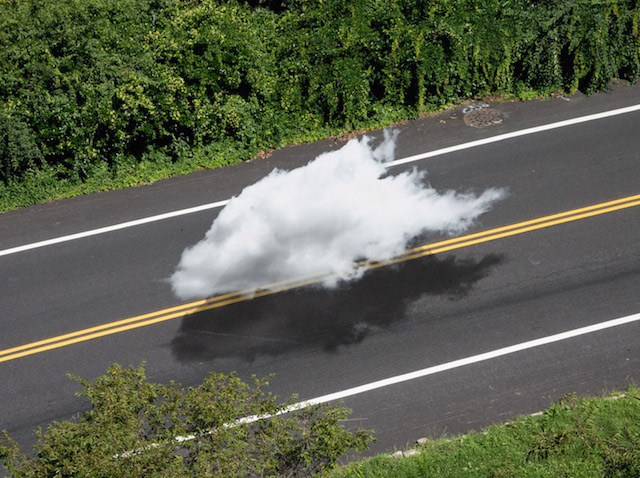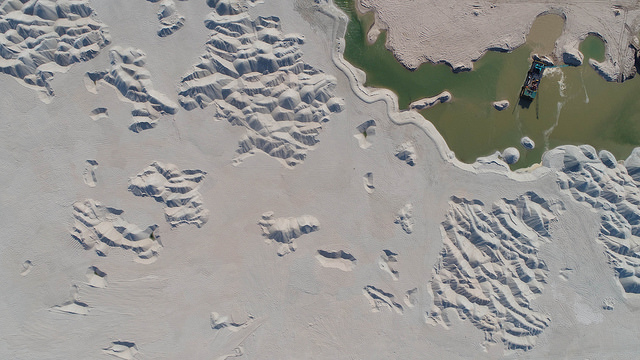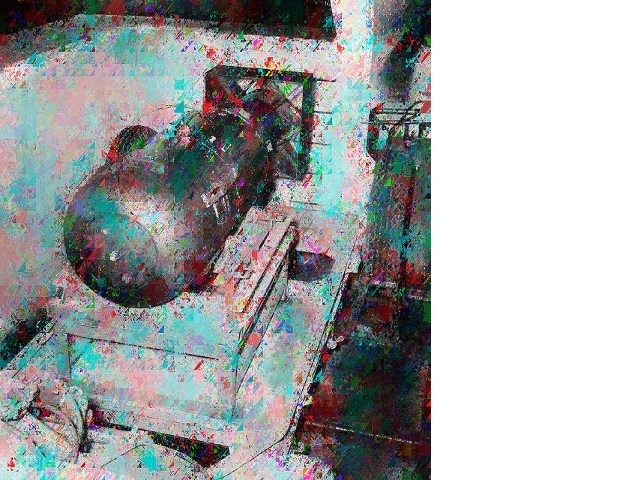Văn An had neglected ritual, not realizing that this was a land now full of ghosts left too long unmoored. That there might be consequences for forgetting to fear.

April 9, 2018

They had been careless. It was too late for regret, too late to mourn. Văn An was not among the many who tried to mourn anyway. That was all they did these days—drift through the prison camp like ash in the wind, trapped in a loop of past and unceasing present, swearing at their own folly as if enough curses could undo all that had befallen the men of Vĩnh Phú.
Time had since melted away, but the most willful among them remembered that it had begun in autumn, just after a new wave of prisoners had poured in. If the year was still 1975, then in April the guards had celebrated the great victory, some wishing they had been in Saigon to witness its fall, most simply thankful that the war was over at last.
That was months ago. Three of Văn An’s older men had even started to pack their few belongings in anticipation of returning to whatever remained of home—and then the orders had come in. Reeducation, they said. Not prison. The distinction was laughable. If the camp stayed operating, so must its guards, and no matter how fond he was of his men, Văn An recognized how wholly unprepared they were for so many prisoners.
The days leading up to the swell were hot and humid, motionless. Still, every one of them had stood tall to watch the parade of South Vietnamese officers shuffle in. Văn An supposed that was something to be proud of. Not that pride mattered now. But when they were alive, on that stifling summer day as mosquitoes droned and dust whisked around their ankles, North met South glare for glare, and for half a breath something more than hatred passed between them. Morbid curiosity, perhaps. Sober recognition of the reality that a single country now beckoned on the horizon, that despite everything else, they shared the same language, the same skin and hair and eyes—the same fears.
The sentiment faded. They had all lost far too much. Văn An was not such a cruel commander, but he had a duty, to his cause and to his men. One prisoner tried to bolt that first day. The very jungle, so densely green against the bleakness of the camp, seemed to intensify its hum as Văn An considered the punishment, the offender on his knees before him. When the man opened his mouth to speak, Văn An was expecting a plea for his life.
Instead the man had said, “There is a picture in my shirt pocket. It is the only picture of me that exists. Please—my wife and daughters will want to put it on the family altar.”
Something in Văn An’s gut twisted at that. A memory of shame, wedged underneath his conscience, wriggled loose. He’d felt a duty to serve all these years, and so he served, but shame makes a cruel man out of duty. He glanced away as he said, “They’ll be better off without it.”
The two guards who carried out the sentence were young. They were just boys, restless, aching to go home and looking for anything on which to vent their frustration. They beat the man for too long. They buried the body in an unmarked grave, and left the blood on the ground, splattered across the dirt. It congealed and dried in the shape of a scream.
That night, fear came to visit. It swept through the camp, its passage masked by the buzz of cicadas, pausing to sniff at the prisoners with satisfaction, and whispering on until it arrived before the commander’s door. Fear reached out with a steady hand and recoiled, for it could sense where it was not wanted. What dwelled instead beneath Văn An’s thoughts was regret, apathy, and perhaps the smallest shred of hope for his country. And in the wake of these things, he had neglected ritual, not realizing that this was a land now full of ghosts left too long unmoored. That there might be consequences for forgetting to fear.
And so, on the fourth night of the new prisoners’ arrival, fear itself made its presence known.
It began as an outbreak of sickness in the east wing of camp. Prisoner and guard alike were taken ill with malaria. Six in all, none of them surviving the next twenty-four hours.
Outbreaks of this speed were rare, inciting a rumor that the executed prisoner was to blame. Bad luck to refuse a man’s last wishes, they said. Bad luck to take away his death along with his life. Văn An oversaw the burials, this time not marking the graves out of sheer spite—though towards what, he was not sure.
Two weeks in, the weather turned. Warm, thick rain hammered down in sheets, sluicing down the walls and turning the grounds into a sea of mud. Văn An was gazing out over the camp from his office, staring at the marks of blood in the dirt as it was washed away.
An old story whispered across the back of his mind, some folk tale or urban legend. His sister, the only person he’d ever loved, had been fond of such stories. She had always been superstitious where he was skeptical, gullible where he was suspicious. Scatter rice for luck. Sweep the floor on New Year’s Day. Mark a death so the ghosts won’t—but the Communists derided these beliefs as the ramblings of an old era. And in the wake of war, thousands of bodies went undocumented, thousands of ghosts that never made it to their ancestors’ altars. The quiet shame of a generation. Văn An did nothing—what were seven more?
He dreamt of his sister that night. Linh was the sole constant in his life, then and even now; he was infuriated that of all the horrors he’d witnessed, all the dissenters slaughtered and all the villages reduced to rubble, this simple human was the sole haunt of his imagination. She hadn’t even died from the war—just stepped into the road at the wrong place, the wrong time, got her bones splintered across the stones and no brother to pick them up. Her body was gone by the time he returned from officers’ training.
There was grief, of course, but all that remained three decades later was a shame, singular and terrible. The holiest tradition of their people was the ancestors’ altar. It didn’t matter if you believed in one god or many, communist or not: you still placed your hopes, your sins, on the altar, and when you died, your family would place you.
In his sleep he replayed a conversation when he and Linh were barely teenagers, recently orphaned and nearly penniless.
“We must have the pictures,” she had insisted. They both stared at the money Văn An held cupped in his palm like a wounded bird. That was all their parents had left behind—no photographs, only paper that could buy them an artist’s rendering.
“What will we do when it runs out?” he’d snapped. “A bag of rice will use up half and a cut of meat the rest. What good would their faces do up on that shelf? Do you think they’d listen to our prayers? Look after us in death if they never did in life?”
Hunger tipped the argument in his favor, and the shelf that served as their altar remained bare. He could not bring himself to fill that bareness after she was gone.
Văn An watched his younger self have that argument. He watched himself return from training and stare at that empty altar, as he had watched for the past thirty years. But tonight was to be different. He turned to leave, walk out forever and go to fight for the only good left in a future without her, when the flare of light on metal caught his eye.
It was the silver of a picture frame. It had not been there a second ago, and Văn An stared and stared, because enclosed within that square of silver was his sister’s smiling face.
That smile was for him, he knew it without a moment’s hesitation; it was a smile not found in the midst nor aftermath of war, a smile lacking reproach, but which struck a deep terror in him all the same. For that was forgiveness in her smile, despite all that he’d done.
Fear smiled in the water’s wake, and let the flooding subside.
In the morning, the fear had come alive. It glistened like sweat and smelled like sour apples. It wreathed the camp and crept between the walls. The sun refused to show its face, as if it knew their cause was already lost. Văn An’s guards refused to rise from their cots, though it made no difference, for neither would the prisoners. His stomach churned with dread as he stumbled through the camp. Men moaned in delirium, each struck by his own ghost in his sleep. Snatches of feverish murmurs tugged at Văn An—
I forgot to light the incense, I forgot to pray one last time—
I missed her death anniversary—
He doesn’t know where their bodies lie—
Remember how I died, that’s all I ask—
I did it for the greater good—
With a snarl, he clapped his hands over his ears. The sounds wormed through his fingers anyway. He broke into a blind run, skidding over rock and mud until the wild buzz of the jungle enveloped him. Anything was better than those moans—
Would you run away again?
The voice was not his. He blinked, vision clearing, but there was no one –
What do you fear most in this world?
He looked down at his hands and screamed—screamed and screamed, because through those hands he could make out fern and palm tree—he was a ghost, he was bewitched, he was no longer attached to the ground, he was attached to nothing at all and he was so, so afraid—
The world shivered and went black.
When Văn An finally stumbled back he found a camp of ghosts. None were spared his fate, not guard nor prisoner, North nor South. They were flailing about in shock and horror. He should have felt concern, should have felt responsible—and indeed these things would come later, once time had melted away, and by then it was almost too late.
Fear had caught up to Văn An; fear had a price, and he had paid with all their lives. Eventually they all came to an unspoken stalemate, for sides mattered little when you were already nothing. There was no recovering, there was no future, and so Vĩnh Phú lay suspended in limbo. Memory—unfaltering memory—
And then the cycle broke. A year into this reckoning, or fifty. It was a girl, stumbling into the deserted grounds just after dusk. They pooled around this foreign creature; they watched her go still, scanning the camp with darting eyes; they inhaled her living scent. Văn An saw her caution, the way she held herself, wary yet brimming with curiosity. Devoid of wartime fear.
Linh would have smiled.



